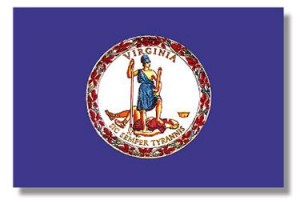
HHS-OIG Issues Request for Information on Health Care Kickbacks
The Department of Health and Human Services, Office of the Inspector General (that’s HHS-OIG to regular readers) recently issued a request for information on kickbacks in health care programs. The public was asked to provide comments about the interaction between the various anti-kickback statutes and how those laws impact the current push for greater “care coordination” in health care programs. “Care coordination,” consists (I assume) of doctors, hospitals, and other interested parties communicating (at a minimum) with each other about each patient and what the patient needs. There is also a definite push (by the American Hospital Association, the American Medical Association, etc.) for greater use of and access to electronic health records for patients, the theory being that greater use of electronic records would enable better care coordination.
More specifically, the request for information stated:
“This ‘Regulatory Sprint’ is focused on identifying regulatory provisions that may act as barriers to coordinated care,
assessing whether those regulatory provisions are unnecessary obstacles to coordinated care, and issuing guidance
or revising regulations to address such obstacles and, as appropriate, to encourage and incentivize coordinated
care while protecting against harms caused by fraud and abuse.”
Government efforts to reduce barriers to coordinated care
As with many things in the realm of health care law and regulation, at least some of the health care industry’s goals seem laudable. After all, who could argue against increased communication between (for example) primary care physicians and diagnostic imaging centers or hospitals? In fact, according to some of the AHA-aligned comments, certain hospitals and others would just love to give away electronic medical record systems (in case it is not clear, they want to do this for free!) to increase the level of communication between the various providers…more on that in a moment…
Of course, there is nothing in the law as currently written to prohibit greater “care coordination” between providers. It is, however, a crime for a provider to offer or pay any “remuneration” in return for the referral of Medicare or Medicaid patients; these same laws severely limit a doctors’ ability to refer patients to medical businesses in which the doctors have a financial interest, a practice known as self-referral. So what is at issue is not so much the ability of providers to coordinate the care they provide, but rather the ability of providers to make money by coordinating an individual’s health care.
TAFEF’s response to the AHA, AMA, etc.
No doubt about it, the health care industry can make some pretty powerful arguments; they certainly have enough money to pay the very best lawyers, lobbyists, wordsmiths, etc. to put a favorable spin on things. For that reason among others I am glad to belong to Taxpayers Against Fraud, and I am glad that TAF prepared this response to the request.
Take for instance the desire of some hospitals to “donate” electronic health care records systems to medical groups to allow for better “coordination” in care. As the TAF letter states, among many other problems, hospitals would have to institute some kind of eligibility criteria for a medical group to qualify for these free systems; otherwise they would be forced to provide expensive software and training to every two-bit practice that sends even one patient to the hospital. The most likely criteria would be the volume of referrals the practice makes to the hospital, and that is where the problems start, because providers would be required to refer patients based not on the needs of the patient but rather on the needs of the practice to get the free software.
(As an aside, I was supposed to provide some assistance with this effort, but I got tied up unexpectedly in court; more on that subject later. Extra special thanks to Ed Baker, Shelley Slade, Claire Sylvia, and Jackie DeMar and Bob Patten from TAF.)
Stay tuned, more on these developments will follow….